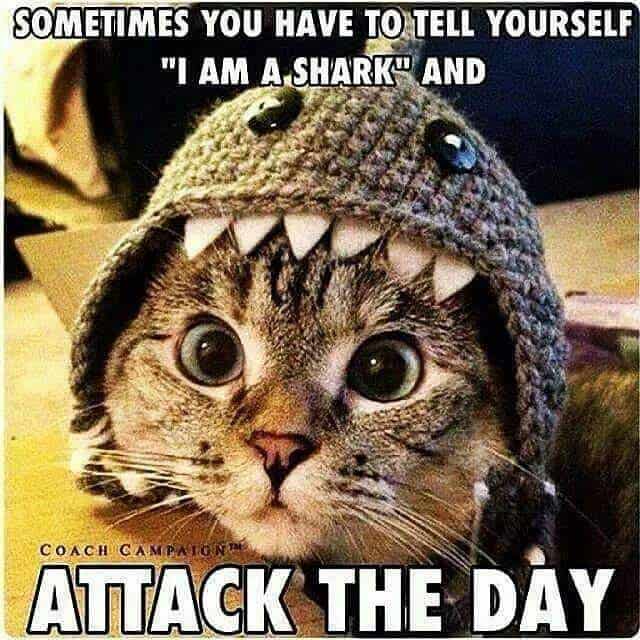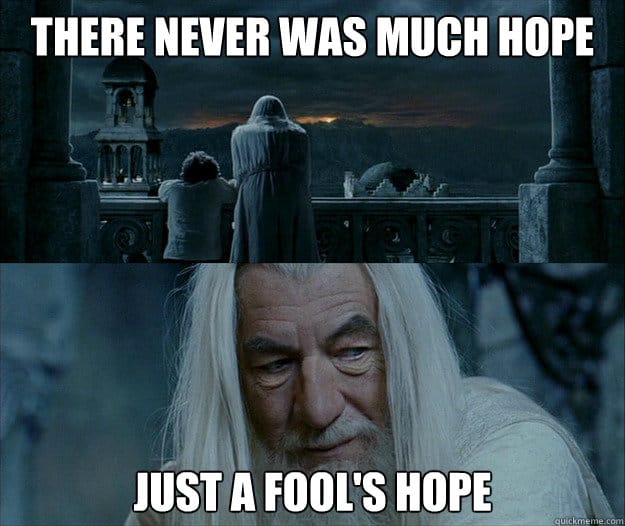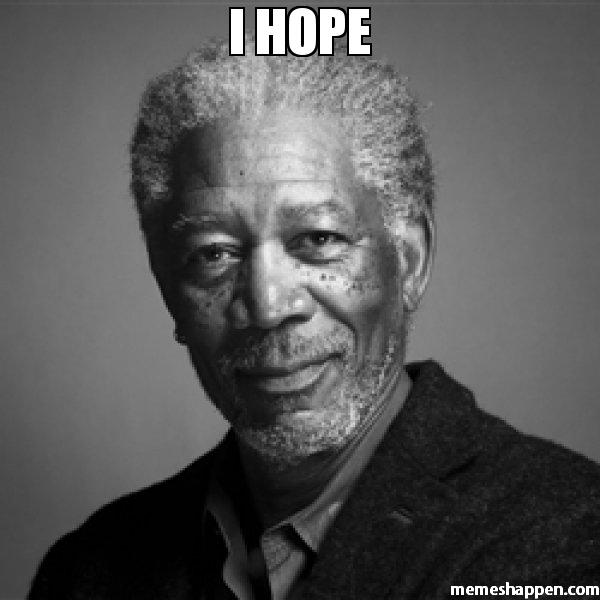I Hope So Meme: The Ultimate Guide To Its Origins, Popularity, And Cultural Impact
Let’s face it, memes have become the universal language of the internet. Among the countless viral sensations, the "I Hope So" meme stands out as one of the most relatable and iconic. Whether you’re scrolling through social media or chatting with friends, chances are you’ve come across this gem. It’s more than just a picture with text—it’s a cultural phenomenon that has taken the digital world by storm.
But what exactly makes "I Hope So" so special? Why does it resonate with people from all walks of life? In this article, we’ll dive deep into the world of memes, exploring the origins, evolution, and significance of this viral sensation. Get ready to uncover the story behind the laughter.
As we journey through the history and impact of "I Hope So," you’ll discover how memes like these play a crucial role in shaping modern communication. So buckle up, because this is more than just a meme—it’s a cultural movement!
Read also:Got Sole Chicago 2024 Your Ultimate Sneakerheads Gathering
What is the "I Hope So" Meme?
Alright, let’s break it down. The "I Hope So" meme typically features an image of a person—or sometimes an animal—looking skeptical or unimpressed. The phrase "I hope so" is added as text, often in all caps, to emphasize sarcasm or disbelief. It’s like the meme equivalent of raising an eyebrow when someone says something questionable.
Think about it: You’ve probably seen it in action. Someone makes a bold claim, and someone else responds with "I HOPE SO." It’s a perfect way to express doubt while keeping things light and humorous. And let’s be real, who doesn’t love a good dose of sarcasm?
Why Did "I Hope So" Go Viral?
So, why did this particular meme catch on so quickly? For starters, it’s versatile. Whether you’re reacting to a friend’s outrageous story or poking fun at a news headline, "I Hope So" fits perfectly. Its simplicity makes it easy to understand, and its humor appeals to a wide audience.
Plus, let’s not forget the power of relatability. We’ve all been in situations where we want to say "I hope so" but don’t have the words. This meme gives us the perfect outlet to express our thoughts without having to say a word. And let’s be honest, sometimes silence really is golden.
The Origins of "I Hope So" Meme
Now, let’s talk about where it all began. Like many memes, "I Hope So" didn’t just appear out of thin air. It started as a simple image with a clever caption, but its journey to meme stardom was anything but ordinary.
According to internet historians (yes, that’s a thing), the meme first gained traction on platforms like Reddit and Twitter. Users began sharing it as a reaction to absurd claims or exaggerated statements. Before long, it had spread like wildfire across the internet, becoming a staple in online conversations.
Read also:Mead Art Museum Amherst A Hidden Gem For Art Lovers
Who Created the "I Hope So" Meme?
Here’s the thing: tracing the origins of a meme can be tricky. Unlike traditional art or literature, memes often evolve organically, with no single creator. However, some sources credit a user on Reddit for posting the first version of "I Hope So." This user reportedly used the phrase in response to a particularly outrageous claim, and the rest, as they say, is history.
Of course, the meme has since been adapted and remixed countless times. Different images, captions, and contexts have emerged, each adding its own twist to the original idea. It’s this adaptability that makes memes like "I Hope So" so enduring.
How "I Hope So" Changed Online Communication
Believe it or not, memes like "I Hope So" have had a significant impact on how we communicate online. In the age of social media, where attention spans are short and messages need to be concise, memes provide the perfect solution. They allow us to convey complex emotions and ideas with a single image and a few words.
Take "I Hope So," for example. It’s not just a reaction to sarcasm—it’s a way to express skepticism, disbelief, or even humor. Whether you’re responding to a friend’s outlandish claim or commenting on a news article, this meme gives you the tools to do so in a way that’s both relatable and entertaining.
The Role of Memes in Modern Culture
Memes are more than just funny pictures—they’re a reflection of our culture. They capture the essence of our times, from political events to pop culture trends. "I Hope So" is no exception. It speaks to a generation that values authenticity and wit, and it does so in a way that’s both accessible and engaging.
And let’s not forget the power of community. Memes like "I Hope So" bring people together, creating shared experiences and inside jokes that transcend borders and languages. In a world that’s increasingly divided, memes offer a rare opportunity for connection and understanding.
Key Features of the "I Hope So" Meme
So, what makes "I Hope So" stand out from the crowd? For starters, it’s got that perfect blend of humor and relatability. Here are some of its key features:
- Sarcastic tone: Whether you’re reacting to a friend’s exaggeration or a news headline, "I Hope So" delivers that perfect dose of sarcasm.
- Versatility: From politics to pop culture, this meme works in just about any context. Its adaptability makes it a go-to choice for online conversations.
- Visual appeal: The image itself is often simple yet striking, capturing the essence of disbelief or skepticism in a single frame.
These features combine to create a meme that’s not only funny but also functional. It’s the kind of content that sticks with you, popping up in your mind whenever you hear something that’s just a little too good to be true.
Common Variations of "I Hope So"
As with any popular meme, "I Hope So" has inspired countless variations. Some of the most common include:
- Animal versions: From dogs to cats, animals have joined the "I Hope So" craze, adding a layer of cuteness to the sarcasm.
- Political adaptations: In the world of politics, "I Hope So" has been used to respond to everything from election results to policy announcements.
- Pop culture crossovers: Movies, TV shows, and even video games have all been featured in "I Hope So" memes, proving just how versatile this trend really is.
These variations keep the meme fresh and relevant, ensuring its place in the ever-evolving world of internet culture.
The Psychology Behind "I Hope So"
Ever wonder why "I Hope So" resonates so deeply with people? It’s not just about the humor—it’s about the psychology behind it. Humans are wired to seek connection, and memes like "I Hope So" provide a unique way to bond over shared experiences.
Sarcasm, in particular, plays a crucial role in communication. It allows us to express complex emotions without getting too serious, creating a sense of camaraderie among those who "get it." And let’s be honest, who doesn’t love a good laugh?
Why Do We Love Sarcasm?
Sarcasm is more than just a form of humor—it’s a way of thinking. It challenges us to see things from a different perspective, encouraging critical thinking and creativity. "I Hope So" taps into this mindset, offering a clever way to question the world around us.
And let’s not forget the social aspect. Sharing a sarcastic meme like "I Hope So" is a way to show that you’re in on the joke, that you understand the nuances of modern communication. It’s a subtle but powerful way to connect with others and build relationships.
Impact on Social Media
In the world of social media, "I Hope So" has become a staple. Whether you’re on Twitter, Instagram, or TikTok, chances are you’ve seen it in action. Its popularity stems from its ability to engage audiences in a way that’s both entertaining and thought-provoking.
For brands and influencers, memes like "I Hope So" offer a unique opportunity to connect with their followers. By incorporating these trends into their content, they can create a more authentic and relatable image, one that resonates with their audience on a deeper level.
How Brands Use "I Hope So"
Many companies have embraced the "I Hope So" meme as part of their marketing strategy. By using it in their campaigns, they can tap into the humor and relatability that make it so popular. It’s a win-win situation: brands get to show their playful side, while audiences get a good laugh.
But it’s not just about the laughs. Memes like "I Hope So" also help brands stay relevant in a fast-paced digital world. By keeping up with the latest trends, they can maintain their edge and continue to engage with their audience in meaningful ways.
Future of "I Hope So" and Memes in General
So, what’s next for "I Hope So" and memes in general? As the internet continues to evolve, so too will the memes that define it. While "I Hope So" may eventually fade from the spotlight, its legacy will live on in the countless memes it has inspired.
The future of memes lies in their ability to adapt and grow with the times. As new platforms emerge and technology advances, we can expect to see even more creative and innovative content. And who knows? Maybe the next big meme will be just as relatable and hilarious as "I Hope So."
Will "I Hope So" Remain Relevant?
Only time will tell if "I Hope So" will remain a staple in the world of memes. But one thing’s for sure: its impact on internet culture will be felt for years to come. Whether it continues to dominate social media or inspires a new generation of memes, its place in history is secure.
And that’s the beauty of memes—they’re not just a passing trend. They’re a reflection of our times, capturing the essence of who we are and how we communicate. So the next time you see "I Hope So," take a moment to appreciate its role in shaping the digital landscape.
Conclusion
As we wrap up our journey through the world of "I Hope So," it’s clear that this meme has left an indelible mark on internet culture. From its humble beginnings on Reddit to its current status as a viral sensation, it’s proven to be more than just a funny picture—it’s a cultural phenomenon.
So, what can we learn from "I Hope So"? For starters, it reminds us of the power of humor and relatability in communication. It shows us that even the simplest ideas can have a lasting impact, and it encourages us to embrace the creativity and wit that make memes so special.
Now it’s your turn. Have you used "I Hope So" in your own conversations? What’s your favorite variation? Let us know in the comments below, and don’t forget to share this article with your friends. Together, we can keep the meme magic alive!
Table of Contents
- What is the "I Hope So" Meme?
- The Origins of "I Hope So" Meme
- Why Did "I Hope So" Go Viral?
- Who Created the "I Hope So" Meme?
- How "I Hope So" Changed Online Communication
- The Role of Memes in Modern Culture
- Key Features of the "I Hope So" Meme
- Common Variations of "I Hope So"
- The Psychology Behind "I Hope So"
- Why Do We Love Sarcasm?
- Impact on Social Media
- How Brands Use "I Hope So"
- Future of "I Hope So" and Memes in General
- Will "I Hope So" Remain Relevant?
Article Recommendations


